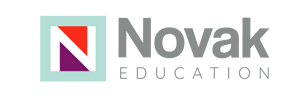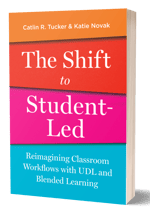How to Use Assessments as a Metacognitive Tool for Learners
As a long-distance runner, I have learned the importance of reflection in improving my performance. After each run, I analyze my pace, consider my pre-run nutrition, reflect on my refueling strategy, and maintain a journal to identify patterns. Over the course of years I have learned that my best bet for a pre-race meal is peanut butter and jelly, but believe me, there has been a lot of trial and error. My brother’s insistence that pickle juice was the way to go was not my best run! This practice of reflection allows me to continuously improve and envision a future where I can run well into my 80s and 90s.
Metacognition is one’s personal understanding and awareness of one’s thought process. The concept of metacognition is important in all aspects of school and life, as it involves self-reflection about one's current position, future goals, potential actions, strategies, and outcomes.
When looking at the role of assessments in the classroom - they are often used as a teacher’s tool to collect data and an understanding of a student’s learning in a particular subject area. From homework to quizzes, classwork to projects - teachers are often in a cyclical, drowning process of assigning, collecting, grading, and repeating. As teachers, you never leave school without a crate of papers to grade and the students miss out on the opportunity to reflect and grow. This is a lose-lose for both parties. What is missing from this process - is the opportunity for students to review the feedback and learn from the work.
To unleash the power of metacognition, we need to shift from a teacher-led approach, where formative assessments merely serve as data collection tools, to a metacognitive tool for learners. When students are actively engaged in the feedback process and view assessments as opportunities for growth, the classroom dynamic transforms. Students become more motivated, reflective, and proactive in their learning, while teachers benefit from reduced workload and increased student ownership of the learning process.
So where do you get started?
Focus on Providing Feedback During the Process
The outdated model of assessment - grading - feedback is not serving our students. Feedback is an integral part of an assessment and needs to be the focus the whole way through. That doesn’t mean you, as the teacher, needs to provide feedback the whole time. Instead, it involves shifting the process to a shared responsibility between the students and you and creating an environment that ensures student reflection so they have opportunities to learn what helps them to work toward mastery of grade-level standards and what does not.
By encouraging students to reflect on their performance, assessments can help students to gain a better understanding of their own learning processes. Just as I continue to refine my running practices through reflection, students can hone their learning processes through metacognition. By encouraging students to reflect on their performance, assessments become opportunities for self-discovery and improved understanding. Through this shift, we equip students with the skills they need to succeed not only in the classroom but also in their future endeavors.




